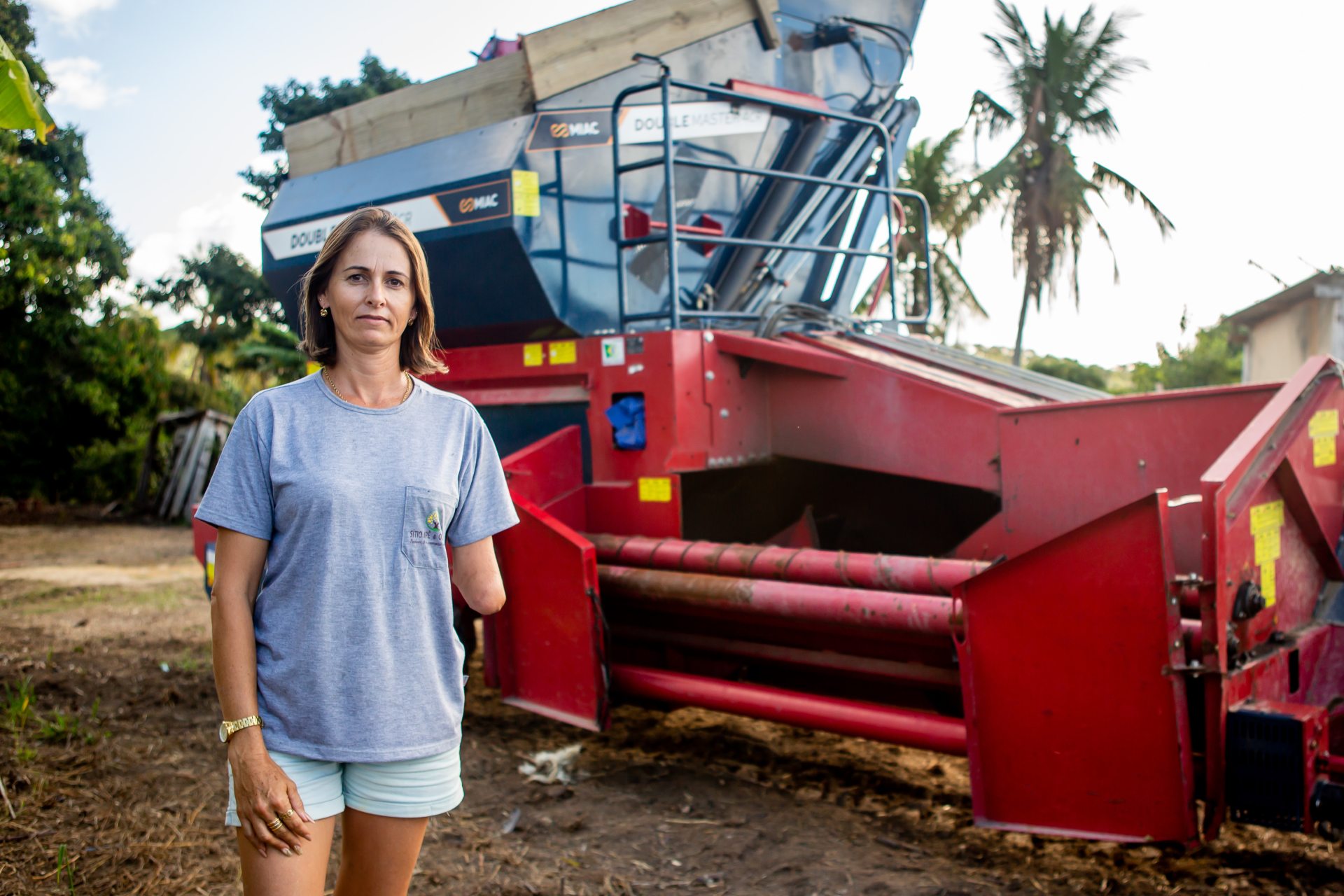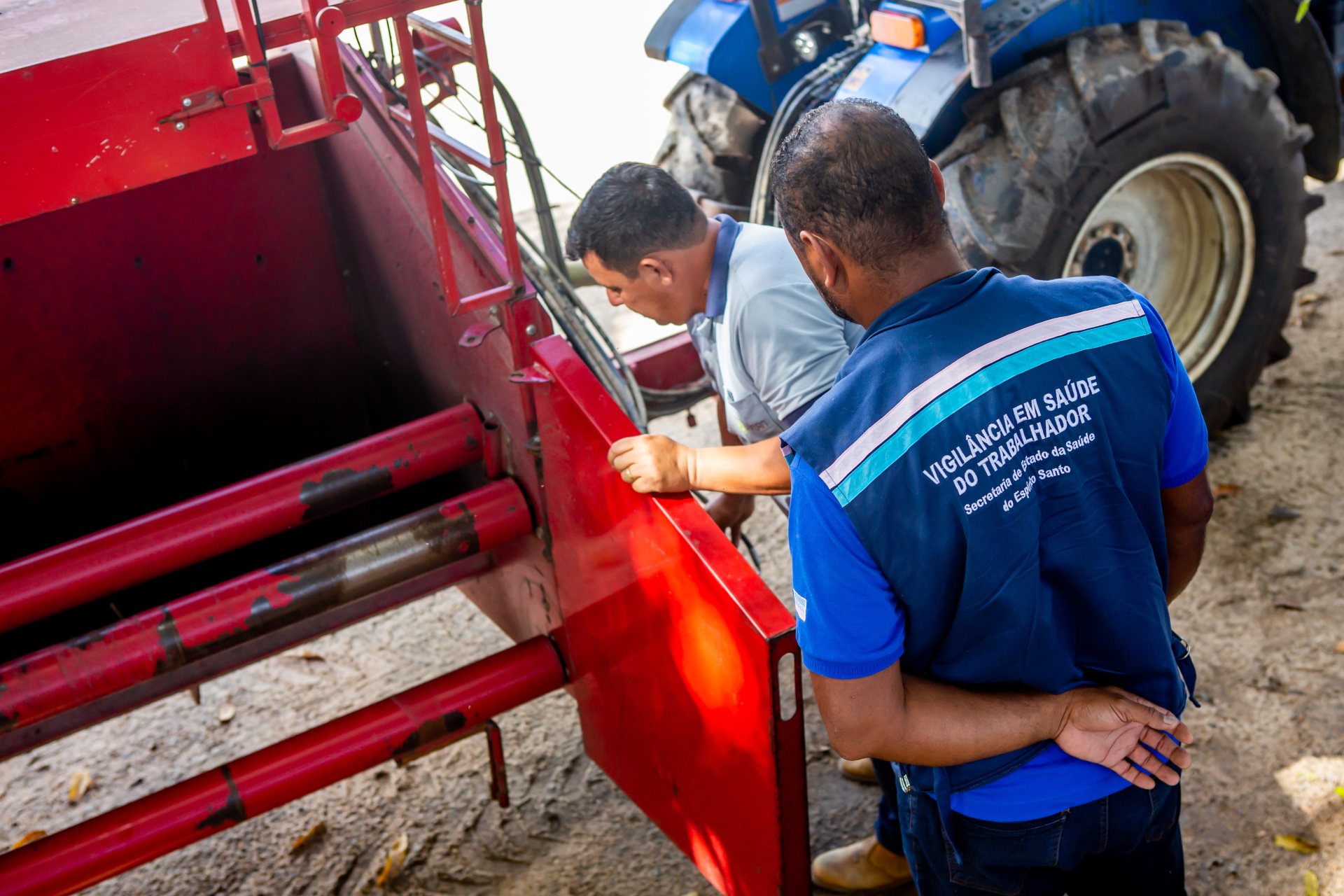THE USE OF HARVESTERS in conilon coffee plantations, a type of bean used to make instant coffee, has been responsible for at least nine amputations of legs, arms, and fingers, as well as two deaths in Espírito Santo in the last two years alone. The accidents have caught the attention of healthcare professionals in the northern region of the state.
The machine was originally designed for bean harvesting and later adapted by manufacturers for use in coffee fields. Until 2022, the equipment was sold without safety features such as a locking button. Its function is to gather branches laden with beans deposited on tarps spread between coffee plants.
For authorities monitoring the accidents, the use of these machines in coffee farming poses additional risks because the branches and coffee beans are heavier than the material collected by the machines during bean harvesting. “Many times, the worker has to pull the tarp to roll it onto the [harvester’s] cylinder, and that’s one of the problems,” explains prosecutor Fernanda Barreto Naves of the Labor Public Prosecutor’s Office (MPT) in São Mateus (ES).
One of the accidents occurred with 42-year-old farmer Rogéria Silveira, who had part of her arm amputated on her farm in Jaguaré (ES). She was adjusting the tarp on the cylinder when the machine caught one of her fingers. “As soon as it caught, I panicked and released the control [responsible for controlling the cylinder’s movement]. When I released it, the cylinder turned and ripped off the arm at once,” recounts Rogéria. See more cases here.

The use of the machine has reduced dependence on manual labor in conilon harvesting. A producer visited by Repórter Brasil in Vila Valério (ES) revealed that he had reduced costs with employees during the harvest after acquiring two harvesters. Last year, the number of temporary workers on his farm had dropped from 120 to 40 people.
Inspectors call for adaptations in the machines
With a series of accidents, representatives of the Labor Public Prosecutor’s Office (MPT), producers, and equipment manufacturers reached a voluntary agreement in September 2022 to develop and install “safety kits” on the machinery. However, inspections on farms during the following harvest showed low compliance with the required adjustments.
In 2023, members of the Workers’ Health Reference Center (Cerest), an agency linked to the Unified Health System (SUS), visited 33 properties in Espírito Santo with irregularities in coffee harvesters identified in the previous year. Of that total, only 25% had installed the complete protection components. “Practically no one made the necessary adaptations,” points out Fernando Roberto da Silva, an agronomist at Cerest.

In the last harvest season, Labor Ministry inspectors reportedly shut down eight coffee harvesters on six farms, according to information obtained by Repórter Brasil through the Access to Information Law (LAI). All were from the manufacturer Miac. Indústrias Colombo, the group that owns Miac, did not respond to the questions sent by the report.
In October 2023, the MPT in São Mateus (ES) issued a recommendation to 11 rural employers’ unions in northern Espírito Santo and to the Federation of Agriculture of the State of Espírito Santo (Faes), asking them to instruct coffee farmers on the need for installing “safety kits.” “So far, we have only received three responses,” explains prosecutor Polyana de Fátima França, also from the MPT in São Mateus.
The required kits include the installation of a panic button for immediate equipment locking in case of an emergency, among other improvements. Additionally, manufacturers were asked to make adjustments to the design of harvesters so that they leave the factory with the new adaptations.
“We asked that this adaptation project for new machines could also be used on used machines,” explains Rafael Rosa, Labor Ministry auditor. “The manufacturer needs to offer this possibility, after all, it was they who made the machine.”
The cost of these adaptations is around R$ 10,000. The new machinery ranges from R$ 245,000 to R$ 365,000, depending on the machine’s power.
From farms to your home
The northern region of Espírito Santo has been consolidating itself as a processing hub for conilon coffee for the production of instant and capsule coffee. In December, the Singaporean group Olam inaugurated a soluble coffee processing unit in Linhares (ES) after investing around R$ 1 billion.
The grain produced by Rogéria is sold to the Cooperative Agrária dos Cafeicultores de São Gabriel (Cooabriel), the largest conilon coffee cooperative in the country, with 7,200 cooperative producers. Cooabriel is also the destination for coffee produced at Sítio Santa Luzia in Nova Venécia (ES), where a 24-year-old died after being pulled into the coffee harvester. Cooabriel did not respond to the questions sent by the report.
Espírito Santo was responsible for 12 of the 18 million sacks harvested in Brazil in 2022, according to data from the Brazilian Institute of Geography and Statistics (IBGE). The state accounts for almost 20% of the world’s production of this type of bean.

